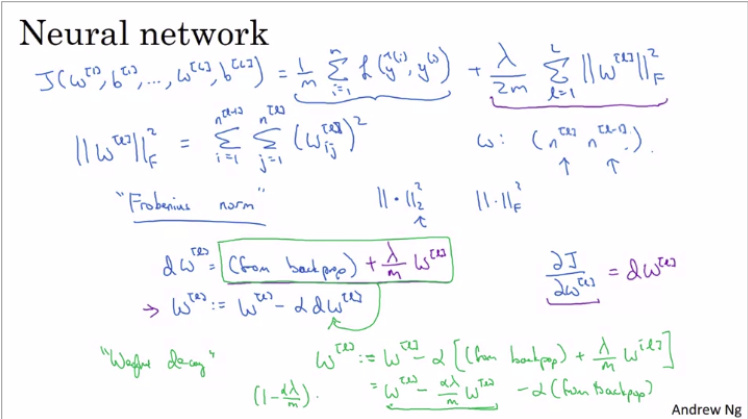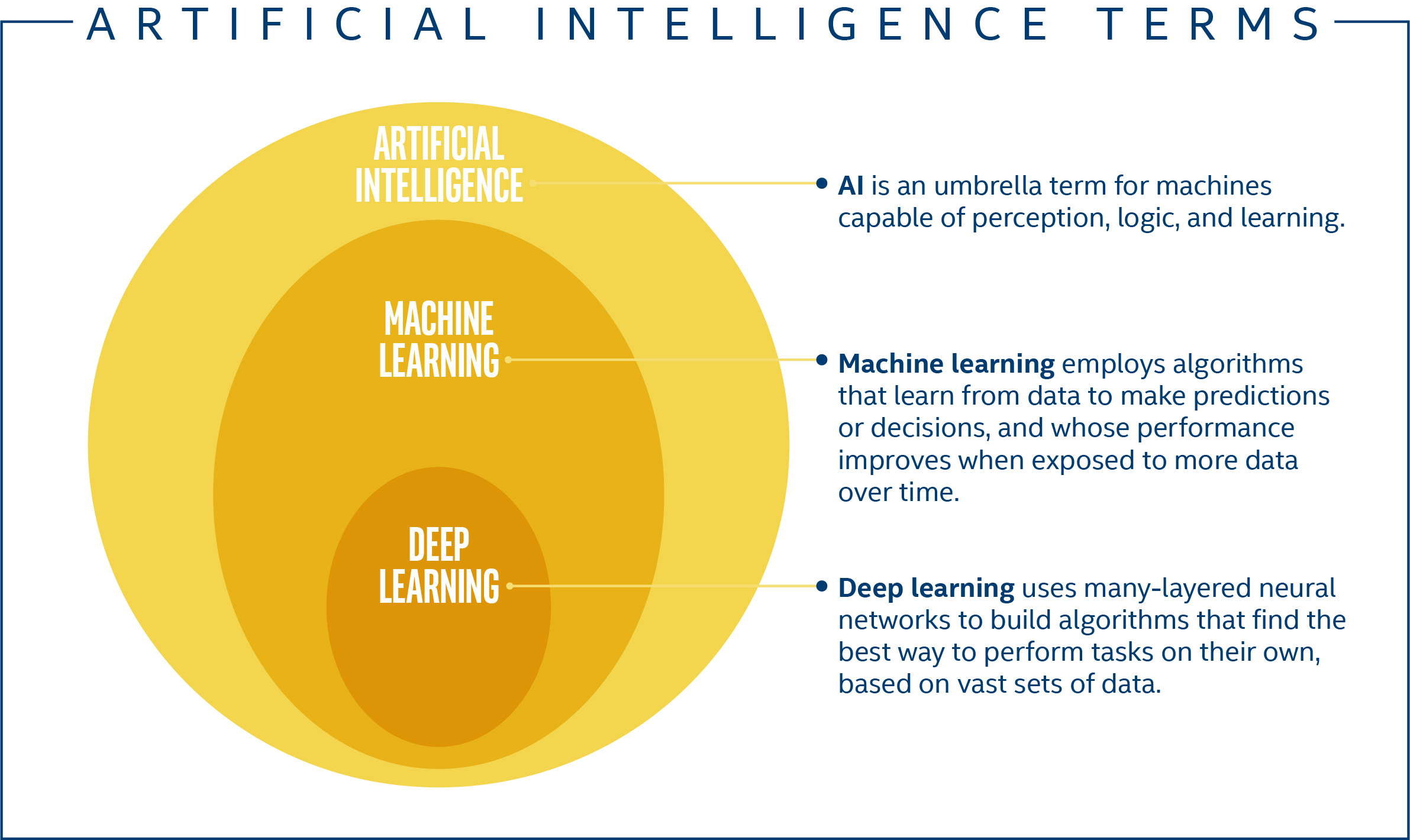
Artificial intelligence refers to the study of machines' ability to make decisions and predict based on data. Many terms are used to describe the field. Natural language processing is one of the most common terms in the field. Although the list is not comprehensive, it should provide a good overview of how these technologies work.
Machine learning
Machine learning is a technique for training computers to make predictions using past data and similar inputs. It is also known as deep learning. This involves creating algorithms to mimic the human brain's structure, and using experience to make prediction. Artificial neural networks are algorithms that are used in machine learning.
Machine learning is an effective tool that can be used in many industries including financial services and pharmaceuticals. Machine learning can be used to identify vulnerabilities in data security and predict future high-risk activity. It is particularly useful for industry verticals that process large amounts of data. Machine learning can be used to extract insights from these data in real-time, which can help companies improve their work processes and gain an advantage over their competitors.
Natural language processing
Natural language processing (NLP), is an important building block for conversational systems as well as artificial intelligence. It allows computers and other machines to understand human speech and interrogate data through the interpretation of what they hear. It is used in automatic translations, chatbots and voice assistants. Natural language processing algorithms use mathematical and comparative processes to clean up user inputs and recognize information that could be used to improve comprehension.

Natural language processing has a long tradition. Alan Turing wrote "Computing Machinery and Intelligence", a 1950 publication that included the Turing Test which automates generation and interpretation. NLP was largely rule based. Linguists needed to create rules for computers to understand the language until the 1990s.
Conversational AI
Conversational AI (also known as artificial intelligence) is a type that can respond to and learn from human conversations. It uses interfaces for programming (APIs) in order to comprehend natural language and provide the best output. This technology can be used by employees to improve efficiency, answer customer questions, and provide self-service.
Conversational AI, which is still in its infancy, is an evolving field. It is far from perfect, and still faces many challenges. Conversational AI must be able recognize and deal with the nuances and differences in human communication.
Backpropagation
Backpropagation refers to the mathematical process by which a neural network can regress to an earlier state using intermediate quantities. Unlike gradient descent, which often results in local minimums instead of global minimums, backpropagation makes use of activation functions known at the network's design time. It was popularized in the 2000s, but it has regained popularity with the introduction of GPU-based computing systems. It has been used to comprehend a variety of phenomena that are related to language learning.
The principle behind backpropagation originated from a Finnish master's student, Seppo Linnainmaa. In 1970, he published a paper that closely resembles modern back-propagation. However, Linnainmaa didn't reference neural networks at the time. Jurgen Schlimmhuber's article gives a detailed history of the concept.

IA (Intelligent Automation)
IA (Intelligent Automation), is a tool that allows companies to improve productivity and lower costs by automating their processes. It does this by leveraging data to ensure accuracy and ensures that processes scale without compromising quality or straining an existing workforce. This type of automation also makes it possible to improve customer service and experience while reducing human error. Intelligent automation is used in many different industries.
Intelligent automation is a powerful tool in the realty industry's sales cycle. It engages buyers prior to requiring the involvement by a real agent, predicts and avoids loan defaults, and it engages them before they even need it. It helps businesses increase their business opportunities by checking and creating rental applications.
FAQ
Why is AI important?
It is estimated that within 30 years, we will have trillions of devices connected to the internet. These devices will include everything, from fridges to cars. The Internet of Things is made up of billions of connected devices and the internet. IoT devices and the internet will communicate with one another, sharing information. They will be able make their own decisions. For example, a fridge might decide whether to order more milk based on past consumption patterns.
It is anticipated that by 2025, there will have been 50 billion IoT device. This represents a huge opportunity for businesses. But it raises many questions about privacy and security.
Which countries are leading the AI market today and why?
China is the world's largest Artificial Intelligence market, with over $2 billion in revenue in 2018. China's AI market is led by Baidu. Tencent Holdings Ltd. Tencent Holdings Ltd. Huawei Technologies Co. Ltd. Xiaomi Technology Inc.
China's government invests heavily in AI development. The Chinese government has established several research centres to enhance AI capabilities. These centers include the National Laboratory of Pattern Recognition and the State Key Lab of Virtual Reality Technology and Systems.
China is also home of some of China's largest companies, such as Baidu (Alibaba, Tencent), and Xiaomi. All of these companies are currently working to develop their own AI solutions.
India is another country where significant progress has been made in the development of AI technology and related technologies. India's government focuses its efforts right now on building an AI ecosystem.
What does AI mean for the workplace?
It will change the way we work. We will be able to automate routine jobs and allow employees the freedom to focus on higher value activities.
It will enhance customer service and allow businesses to offer better products or services.
This will enable us to predict future trends, and allow us to seize opportunities.
It will enable companies to gain a competitive disadvantage over their competitors.
Companies that fail to adopt AI will fall behind.
What industries use AI the most?
The automotive industry is among the first adopters of AI. BMW AG uses AI as a diagnostic tool for car problems; Ford Motor Company uses AI when developing self-driving cars; General Motors uses AI with its autonomous vehicle fleet.
Other AI industries include banking, insurance, healthcare, retail, manufacturing, telecommunications, transportation, and utilities.
How will governments regulate AI
The government is already trying to regulate AI but it needs to be done better. They must make it clear that citizens can control the way their data is used. And they need to ensure that companies don't abuse this power by using AI for unethical purposes.
They also need ensure that we aren’t creating an unfair environment for different types and businesses. For example, if you're a small business owner who wants to use AI to help run your business, then you should be allowed to do that without facing restrictions from other big businesses.
Is AI good or bad?
AI is seen in both a positive and a negative light. The positive side is that AI makes it possible to complete tasks faster than ever. Programming programs that can perform word processing and spreadsheets is now much easier than ever. Instead, our computers can do these tasks for us.
The negative aspect of AI is that it could replace human beings. Many people believe that robots will become more intelligent than their creators. This means they could take over jobs.
Statistics
- In 2019, AI adoption among large companies increased by 47% compared to 2018, according to the latest Artificial IntelligenceIndex report. (marsner.com)
- The company's AI team trained an image recognition model to 85 percent accuracy using billions of public Instagram photos tagged with hashtags. (builtin.com)
- A 2021 Pew Research survey revealed that 37 percent of respondents who are more concerned than excited about AI had concerns including job loss, privacy, and AI's potential to “surpass human skills.” (builtin.com)
- More than 70 percent of users claim they book trips on their phones, review travel tips, and research local landmarks and restaurants. (builtin.com)
- According to the company's website, more than 800 financial firms use AlphaSense, including some Fortune 500 corporations. (builtin.com)
External Links
How To
How to setup Siri to speak when charging
Siri can do many tasks, but Siri cannot communicate with you. This is because your iPhone does not include a microphone. Bluetooth is a better alternative to Siri.
Here's how you can make Siri talk when charging.
-
Select "Speak when Locked" from the "When Using Assistive Hands." section.
-
To activate Siri, double press the home key twice.
-
Ask Siri to Speak.
-
Say, "Hey Siri."
-
Say "OK."
-
Speak up and tell me something.
-
Say, "I'm bored," or "Play some Music," or "Call my Friend," or "Remind me about," or "Take a picture," or "Set a Timer," or "Check out," etc.
-
Say "Done."
-
Thank her by saying "Thank you"
-
If you have an iPhone X/XS or XS, take off the battery cover.
-
Replace the battery.
-
Put the iPhone back together.
-
Connect the iPhone with iTunes
-
Sync the iPhone
-
Allow "Use toggle" to turn the switch on.